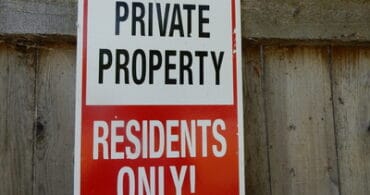Are Rent Guarantee Schemes Worth it?
With so much pressure on landlords in the wake of the COVID-19 pandemic, not least the evictions ban and, more recently, the breathing space rule, it is no wonder so many buy-to-let investors are starting to look into the benefits of guaranteed rent schemes. Here we explore the reasons for the mounting interest and ask, are rent guarantee schemes worth it?
With so much pressure on landlords in the wake of the COVID-19 pandemic, not least the evictions ban and, more recently, the breathing space rule, it is no wonder so many buy-to-let investors are starting to look into the benefits of guaranteed rent schemes. Here we explore the reasons for the mounting interest and ask, are rent guarantee schemes worth it?
What is a rent guarantee scheme?
A rent guarantee scheme involves a landlord entering into a contract with a third party, such as a letting agent or property management company, or a local council. The third party takes control of the property and becomes the tenant. They pay a fixed monthly income to the landlord over an agreed period, even if the property is vacant.
Guaranteed rent schemes are not to be confused with rent guarantee insurance. This is an insurance policy that covers the rental income in the event of tenants failing to pay. It is not the same as ‘loss of rent’ cover, which can only be claimed when a property becomes un-lettable due to damage covered by a buildings insurance policy.
Rent guarantee insurance can usually be claimed once tenants are behind with their rent by a month, but only once the official evictions process has commenced. The insurance will then cover the rent for a fixed period of around 6-12 months. Protection however is limited to set amounts and time periods, and the cover will only apply following certain events. Sometimes there will be an excess to pay, and in some cases, exclusions will apply.
Why are rent guarantee schemes offered?
When you ask, are rent guarantee schemes worth it, you will probably also wonder what is in it for the third party offering the scheme.
The answer is that third parties treat the arrangement as a commercial venture, aiming to make a small profit from the difference in what they charge the tenant, and what they pay the landlord.
Whilst the monthly payment made to landlords may be slightly lower than market value, landlords tend to appreciate the fact that they can take a back seat with their investment, because the third party takes on full responsibility for managing the property.
This will generally include sourcing and referencing tenants, preparing the property for occupation, arranging all the necessary property inspections and safety certificates, taking care of legal compliance and covering all the legal costs and, of course, paying the rent every month, so there is no chasing to do. So there is literally nothing left for the landlord to do, other than enjoy the rental income. In other words, more security, and a lot less hassle.
Are there any disadvantages to guaranteed rent schemes?
Are rent guarantee schemes worth it, or are there any downsides? Naturally, with any commercial scheme, there will be disadvantages. Some worth considering could be:
- Having less control over the property yet still remaining liable for it
- Possibility of lenders being apprehensive to release funds against the property
- Potential for third party tenant’s business to fail, leaving the landlord without income
- Rental income will generally be slightly lower than market value
In reality though, it is simply a case of weighing up the pros and cons, and thinking about what is most important. If a stable income tops your list of priorities for example, then you may choose to overlook any potential shortcomings.
In any case, not all lenders will take a dim view of rent guarantee schemes and may be inclined to judge on individual circumstances. What’s more, if the scheme is a council backed one, then the income will be far sounder than with a privately backed scheme.
Finally, with the likes of legal fees, managing agent commission, void periods and admin charges all left off the expenses sheet, landlords could potentially see an annual saving and, therefore, a greater yield.
Are rent guarantee schemes worth it? With homes2let, the answer is YES.
If you are considering a rent guarantee scheme to help ease your burdens as a buy-to-let investor, and to ensure you don’t face rent arrears problems that so many landlords are experiencing during the pandemic, take a look at what homes2let has to offer.
Our council guaranteed rent scheme involves us letting your property to council tenants for a fixed period. This means that your rent will effectively be paid by the council, giving you the reassurance you need of a reliable third party tenant.
Our relationships with local authority housing teams go back for many years, and we have no trouble at all placing privately rented properties with the families who need them.
With clear, straightforward contracts, and fast turnarounds that could see you receive an offer within 24 hours of us viewing your property, there is nothing to lose, and everything to gain.
To learn more about how the homes2let guaranteed rent scheme works, and how to offer your property for rent to one of our local authority housing teams with homes2let as your corporate tenant, we welcome you to get in touch.
Related Insights

Buy to let Market Turbo-Charged in Wake of Stamp Duty Holiday Extension
The extended Stamp Duty holiday appears to be having a significantly positive impact upon the private rental market, recent research has revealed. A survey of 500 UK landlords shows that more than a quarter say they are planning to expand their buy-to-let portfolios in the next 12 months.

Surge in Rent Arrears Sparks Call for Landlords to Protect Their Investments
UK landlords are being prompted to make sure they have appropriate strategies in place to protect their property investments following a recent surge in rent arrear cases. With government data revealing that rent arrears amongst private tenants have increased, and almost two thirds of landlords reporting that they’ve had to absorb arrears-related losses from their savings, it is vital that some form of landlord rent arrears insurance is in place to mitigate future financial issues.

A Landlord’s Guide to Right of Entry
A lot of landlords are of the opinion that because they own a property, they have an automatic right of entry without first gaining permission from the tenant. There are however clear rules and regulations that dictate when a landlord is allowed, and not allowed, to enter a property, and when tenant permission is required to do so.







